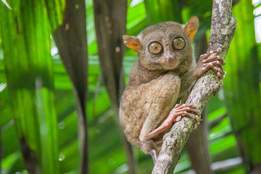plural hare or hares
: any of various swift, gnawing, herbivorous, usually shy lagomorph mammals (family Leporidae and especially genus Lepus) that have long ears, short tails, and powerful long hind legs, are usually solitary or sometimes live in pairs, have the young open-eyed and furred at birth, and live in aboveground nests compare rabbit sense 1a
Love words? Need even more definitions?
Merriam-Webster unabridged











Share